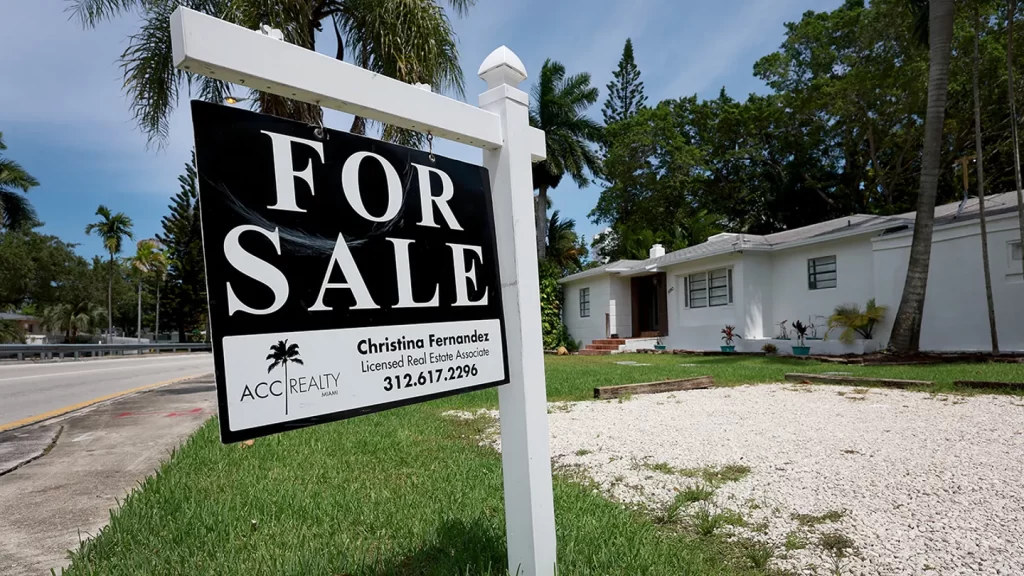The cost of purchasing a home has risen drastically over the last year, with mortgage rates reaching nearly 7%. The average monthly mortgage payment for the typical U.S. homebuyer is now 19% higher than it was a year ago, according to Redfin data. This is in stark contrast to two years ago when the benchmark home loan averaged just 4.99%.
Alongside rising borrowing costs, home sale prices have increased 3.2% annually – the biggest increase since November 2020.
This sustained upward trend can be attributed to the imbalance between supply and demand, high borrowing rates have caused a number of sellers to exit the market, thereby limiting available homes on the market.
New listings dropped 21%, while overall inventory decreased by 19%, according to Redfin data – its biggest decline since February 2022.
The current housing market presents numerous challenges for potential buyers looking to purchase their first home or upgrade from their existing property due in large part to increasing monthly payments and limited availability of desirable homes at reasonable prices.
Additionally, as COVID-19 continues to wreak havoc on economies around the world, unemployment levels remain elevated in many countries across all income brackets — meaning more people are unable or unwilling to buy right now due to financial insecurity or fear that house prices could drop soon after they purchase a property.
For those brave enough to venture into this highly competitive landscape, there are some options available: one-way buyers can get ahead is by researching local markets thoroughly before making any offers so that they know what properties are selling for in certain areas and how long they’ve been on the market.
This information will help them make informed decisions about whether it’s worth investing into a particular area or not — as well as give them better bargaining power if multiple offers come through on top of theirs (which is likely). In addition, buyers should consider applying for pre-approval with multiple lenders so that they can compare interest rates and other loan terms from different institutions prior to submitting an offer – ultimately allowing them access to lower borrowing costs which will reduce their overall monthly payments over time.
It’s also important that buyers understand how much money they’re comfortable taking out of their savings account(s) for a downpayment – especially considering that if house prices drop significantly in future years then you may end up owing more than what your property is worth (i.e., negative equity).
Finally, finding creative ways to save money throughout the process such as utilizing virtual tours instead of physical ones during open houses can also help ease some pressure off budgeting concerns. Ultimately however it’s important that potential homeowners do plenty of research before committing – so don’t rush into buying something without understanding what you’re getting yourself into.



1 Comment
It would help things for buyers quite a bit if buyers who are going to physically live in the homes they want to buy are given priority by law. I am all for capitalism, but in today’s market first time buyers, young couples just trying to find a home for their family, find it impossible to compete with investors with fat pockets. It’s un-American to watch these young families, or older people trying to downsize, or just people who are trying to break into the market, lose home after home to investors, corporations or just flippers. All the homes that would have been “fixer uppers”, the kind that historically let people get a house entry level, are now closed to buyers without huge bank accounts. This is wrong, because those people merely are looking for a home to live in. I hold out no hope a political leader will do something about this, after all investors have more money to donate in PACS etc., but it is a terrible injustice for people who want to do what every generation before us could do if they worked and prepared for it, live in their own home.